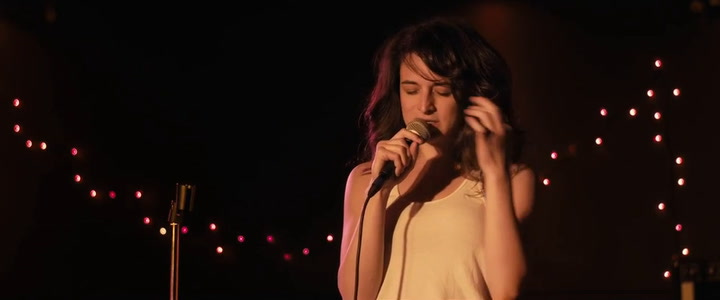The year was 1973. The Godfather took home the Oscar for Best Picture, but it lost in most of the other categories that it was nominated in. What movie did it consistently lose to? Cabaret.
Cabaret - which gave choreographer turned director Bob Fosse his first Oscar - is often referred to as “the musical for people who hate musicals”. I am going to write a future piece on other musicals for people who hate musicals and I’m also going to write a piece on the AFI Top 100. Cabaret fits both of those bills and deservedly so. I rewatched Cabaret recently and I was incredibly moved. It’s great.
The reason that it’s a good “musical for people who hate musicals” is because all of the musical numbers are motivated aka someone isn’t singing about their feelings for no reason in public while everyone else transforms into supportive background dancers. The musical numbers in Cabaret are all part of the cabaret show. Every song except for one is a legitimate musical performance.
Side note: it’s silly that people hate musicals because it is unrealistic for people to sing out-of-nowhere as if people never sing in real life (I make up songs at work constantly because life is tedious - I’m annoying, but fun!) or that all movies are documentaries. Do you know what else is unrealistic? 50% of what is in any movie. It’s unrealistic for people to have a kung fu fight in public, but no one is whining that ‘martial arts movies are so unrealistic!!!’ Yeah, girl, it’s the medium. Expand your horizons! Let a little music into your cold, silent heart!
The song that isn’t in the cabaret theater is one of the most powerful scenes in the movie - especially powerful during today’s cLiMaTe. If you don’t know the plot of Cabaret, then here we go: we follow a cabaret theater in Berlin where a British teacher befriends a determined American actress who dreams of being a star all while Germany transitions to Nazism in the background. It’s background until it’s foreground. The changes are subtle at first. The show must go on, but the crowd becomes increasingly filled with red armbands. Violence erupts in the streets when the performers leave for the night. People try to carry on with their lives, but it gets increasingly difficult to ignore the horrors going on around them. Sounds familiar, no? (If you read that in a little European accent, then I must apologize. Life is a cabaret, darling!)
Rewatching Cabaret recently evoked the past few years in America with the rise of fascism and how slow and steady the progress feels until it grips the public in its clenched fist. The only musical number outside of the club features the main characters, Sally Bowles (Liza Minelli) and Brian (Michael York), having a picnic in a rural German town with a fancy Baron they are both flirting with. A group of Nazi youth burst into song, singing a nationalist song called “Tomorrow Belongs to Me”. Others join in until the sound surrounds them on all sides and the three protagonists are the only few who aren’t singing.
Brian turns to the baron and asks, “Still think you can control them?”
Politics aside, we rewatched Cabaret because I am pitching a screenplay that involves live performance on stage. Cabaret is masterful at filming the stage performances, letting the camera sit in the audience for much of it to induce the sensation that the viewing audience IS the audience in the crowd. It’s genius!

I’ve written before about theater movies; but when I think of filming the stage in a relatable way to people who actually work in theater, I also think of the movie Obvious Child. It’s an off-beat romantic comedy from 2015 about abortion with a comedian (Jenny Slate) as our protagonist. The film takes us to the comedian’s shows which look very realistically like the bar shows that I know so well. Small purple string lights grace the back wall of the stage. There is no curtain or backstage. The room is small and the stage is even smaller. You use the same bathroom as the audience so a drunk person can see you washing your hands post-shit and say “you were pretty funny”.
The stage, much like the stage in Cabaret, makes sense for the medium as well as the room. It’s small and intimate, like so many black box and bar theaters across the country. Most theater experiences aren’t massive auditoriums or arenas. They are intimate affairs that take you out of the cramped audience space you’re in and into a dream world that the stage provides. That’s what Cabaret does so well: the camera places us in the crowd, peering between shoulders up at the MC and his dancers jiggling around onstage until it whisks us away from our surroundings with Sally Bowles’ powerful ballads up until Cabaret’s final powerful shot.
What I’m watching: The Traitors! Severence, RuPaul’s Drag Race
What I’m reading: Lincoln in the Bardo by George Saunders
What I’m listening to: You Must Remember This and this great episode of Offline about the TikTok debacle which I highly recommend. They bring up a lot of salient points about “the media”, media literacy, what we do know about the case, and more that I think people should consider instead of, you know, just getting all news from a 21-year-old on TikTok (who says things like ‘the media doesn’t want you to know this’ while clearly riffing off a story they got on some form of media).





